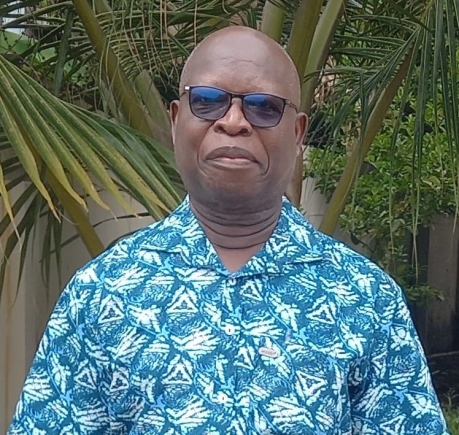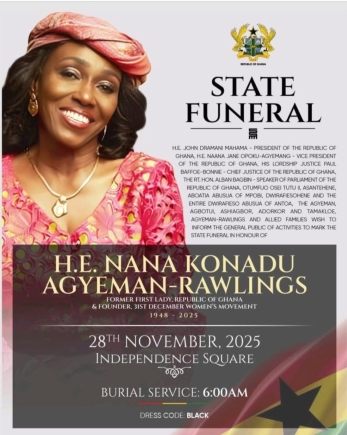Commenting on my recent article “Denkyira-Obuasi to Ahafo-Hwediem”, Ghana’s former Deputy African Union (AU) Chairman,Kwesi Quartey, quipped humorously, saying, “Situation, no change!”
This was his extract from my opening paragraph, which stated: “At a funeral reception recently, a colleague asked why I sometimes refer to articles I wrote some years back!
My simple answer was, ‘Abed (Abednego), it is because, as we say in the military, situation, no change, when things remain unchanged.
So, while one would want to write about positive and more interesting topics on national development, “galamsey”, corruption, insults/unbridled arrogance, filth, bad roads, schools-under-trees, etc., still dominate news!”
Insult consultants?
This time, on TV in the full glare of all, two senior academics, a professor and a senior lecturer, traded insults, which got close to fisticuffs.
As I watched the unbelievable spectacle and related it to cases of indiscipline in senior high school (SHS), I remembered Geoffrey Chaucer’s Canterbury Tales, in which he asked the famous question: “If gold rusts, what will iron do?”
What are the lecturers in this duel teaching their students?
It also reminded me of my February 28, 2018, article titled: “Values, Attitudes and Law Enforcement”, a portion of which i narrate below.
Unkempt kids
Recently, a young single parent recounted her experience when she took her child to school on a Monday morning.
As can be expected of an elite Ghanaian basic school, an assortment of luxurious cars trooped in each morning to bring the children of their rich owners to school.
However, what struck Jay that Monday morning about the routine dropping off of children was that the children who came out of those posh cars looked more like coal miners at the end of their shift.
While their school uniforms looked dirty and scruffy, their general appearance, particularly their unkempt hair, was disturbing to Jay, a single parent.
What upbringing were such rich parents, who dropped off their kids in luxurious vehicles, giving their children, seeing nothing wrong with bringing them to school so dirty on a Monday morning?
This incident brought back a question my nephew asked his mother a few years ago, which was referred to me! The young university graduate asked his mother what legacy their parents were leaving for them.
He fired at his mother that she and her siblings constantly spoke fondly and lovingly about the virtues and discipline their parents instilled in them.
Then he continued saying: “All we hear you do daily is hurl insults at one another using intemperate language and showing open disrespect to one another in the full glare of the whole world.
Meanwhile, ours is a country which produces nothing apart from bitters and building filling stations.
We import everything, including toothpicks and vegetables, from neighbouring and faraway countries.
Corruption has deep roots and is strangling us with the power of a chokehold.
Are you our parents, happy bequeathing us with a legacy of violence, indiscipline, stealing, lies, filth and corruption, and consigning us to permanent poverty with the huge debts you are leaving for us after all your conspicuous consumption?”
The mother was sad about her son’s questions as she realised that she had no answers to them. She asked me: “Uncle Dan, so what do we do?”
President Sukarno
On a visit to Indonesia in 1968, Prime Minister Lee Kuan Yew of Singapore was impressed with what he saw.
He, therefore, complimented President Sukarno of Indonesia with these words: “You are blessed with a beautiful country”.
Sukharno’s answer was “Yes, God has blessed us.
The problem is the people”.
Like Lee, I think Ghana is blessed. But, how about its people, as Sukarno said about Indonesians?
Certainly, the people of Ghana need visionary and good leadership by example/integrity to ensure a change in values and attitudes.
Most importantly, we have to enforce our laws! Time without number, I have heard on the radio/TV experts chorus that Ghana has some of the best laws in the world.
My simple question is: of what benefit are good laws on paper when they are not enforced?
I ask myself why we have become so negative and cynical.
Why do Ghanaians denigrate anything Ghanaian and yet offer so much “traditional Ghanaian hospitality” to foreigners?
Why do traditional rulers cooperate with foreigners in the destruction of our forests and water bodies through illegal mining?
Mediocrity, indiscipline, violence
Why do we praise mediocrity and kill achievement? What happened to meritocracy, which brought out the potential in students from villages when we went to secondary school in the 1960s?
This country is so blessed with both human and material resources that, with a positive attitude under effective visionary leadership, we can do far better than we are doing, in the estimation of my nephew.
For about the first 20 years of life as a nation, traditional values were generally respected and observed, in spite of some social upheavals.
Thereafter, a new alien culture of revolutionary violence, indiscipline, disrespect for authority and dislike for success while hailing mediocrity, got injected into Ghanaian society.
The very fabric of Ghana’s societal values got dealt a heavy and angry blow, with an alien culture of viciousness and selfishness replacing the virtues of Ghanaian society at independence. This has had a serious toll on Ghana.
Way forward
What we need is a rediscovery of the time-tested values of truth, integrity, hard work, respect for diversity and discipline back to what we had at independence, when the Ghanaian respected and felt proud to be a Ghanaian.
Indeed, such was Ghana’s image internationally that some colleagues from other African countries said that in the 1960s, they all took pride in introducing themselves as Ghanaians overseas.
Given effective visionary, respectful and selfless leadership, this country can rediscover itself and move forward again, such that my nephew’s question about what legacy we are leaving for them will not embarrass us.
Discussion
Seven years after the article above was written, we need a “Sankofa” to the cultured society we were brought up in during our primary/secondary school days in the 1960s, when respect was given!
We never saw our primary school teachers exchange words.
Dr Samuel Johnson, referred to as the father of the English language for producing the first English dictionary on April 15, 1755, said this about education: “The supreme end of education is expert discernment in all things the power to tell the good from the bad, and the genuine from the counterfeit.
But, above all, to prefer the good and the genuine to the bad and the counterfeit.”
Hopefully, the lecturers can learn from this after their infra-dignitatem behaviour.
At Legon, Prof. Gyekye, Prof. Wiredu, Prof. Sey and Prof. Senanu were all respected gentlemen and role models.
How do the two “fighting-professors/senior lecturers” want to be remembered by their students? “If gold rusts, what will iron do?”
Happily, the two lecturers are reported to have smoked the peace pipe! Leadership, lead by example and Integrity! Fellow Ghanaians, wake up!
The writer is a former CEO, African Peace Support Trainers Association Nairobi, Kenya; Council Chairman, Family Health University,
Teshie, Accra
E-mail: dkfrimpong@yahoo.com


